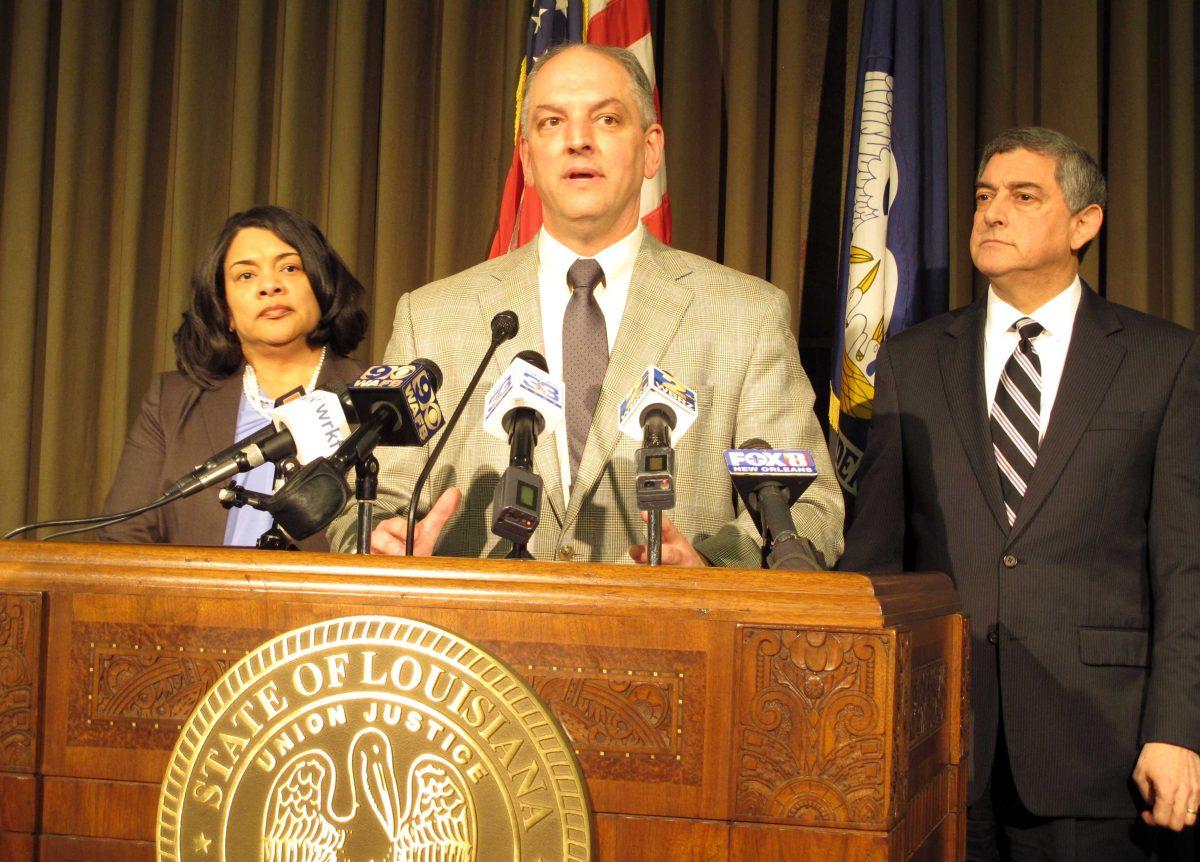To mitigate Louisiana’s budget shortfall, Gov. John Bel Edwards has proposed a plan that, if approved, would make the state’s sales tax rate the highest in the country, but potentially reduce cuts to higher education.
Louisiana currently has the third-highest sales tax rate in the country, according to The Tax Foundation. Edwards proposed adding one cent to the sales tax starting April 1, increasing the combined local and state sales tax rate from an average of 9.1 percent to 10.1 percent, according to a report by NOLA.com, making it the highest in the nation.
If Louisiana was still under former Gov. Bobby Jindal’s administration, Public Administration Institute director and professor Jared Llorens said he “would be concerned.” But he said he is confident Edwards will raise revenue rather than rely on budget cuts.
However, sales taxes disproportionately affect those on the lower end, like college students, he said.
The sales tax proposal also includes raising the state cigarette tax by 22 cents.
General business sophomore Samantha Schloegel, a smoker, said the sales tax on cigarettes may help her quit the habit.
Schloegel said she knows budget cuts have already reduced classes. She said her roommate recently transferred from LSU to the University of New Orleans because of the lack of language courses.
Llorens said the state budget is comparable to a student’s personal budget: every student has a certain level of expenses each year for tuition, housing and food.
If a student does not have the money to meet those expenses, the same way the state currently cannot meet its own expenses, he said there are two common tactics.
The first is to get a job and make more money, equivalent to the state raising taxes, he said. The second is to reduce monthly expenses. For students, this would mean shopping at Winn-Dixie instead of Whole Foods, but for the state it would mean spending less money on higher education.
Essentially, Llorens said, the state has to figure out a way to increase revenue or cut back on spending.
He said there are two major issues right now: the current fiscal year’s short-term budget gap and the larger budget gap for next fiscal year. There is a need for an immediate solution for the current deficit and a long-term strategy for next year’s deficit.
The situation is similar to what the state went through last year, but with a “new set of players,” including Edwards, Llorens said.
From what he understands, Llorens said Edwards has committed to not cutting higher education. However, higher education is not “protected” in the state budget.
Louisiana has state funds that are already “spoken for,” and higher education is not one of them, Llorens said, making it an easy target as opposed to other pools of money.
Because former Gov. Jindal was unwilling to raise revenue to direct toward higher education, Llorens said a lot of financial mitigation relied on budget cuts.
He said the University can and should be “cautiously optimistic” about its future and Louisiana’s budget deficit. The University has gone from relying on the state for tuition to raising tuition rates as the state takes funds back to compensate for its budget deficit.
Communications studies senior and Louisiana resident Mia Williams said her department has already lost a couple of classes. One class went from 30 to 60 people because sections had to be combined.
Though she is graduating in May, Williams expressed concerns for graduate school.
“No one cares, pretty much, so nothing’s going to get better, she said. “Young people, we – I’m going to say ‘we’ because I don’t really vote or anything, either – we know how things affect us, but we don’t really care about changing it.”
International studies sophomore Kyle Quincy said he is “kind of” worried because students are being taken advantage of more than any other demographic. He said students pay for higher education but do not get its full benefits.
For example, Quincy said he has friends studying in science departments who lack resources, equipment and labs.
“All these resources that should be available to them aren’t,” he said.
Quincy said he read an article about the deficit situation, but has not researched it enough to know what the “specific blowback” will be for the University or other institutions. But he said he knows the money will be missed.
Edwards proposes plan to raise sales tax, minimize cuts to higher ed
By Sarah Gamard
January 25, 2016
Louisiana Gov. John Bel Edwards, center, unveils his proposals for balancing Louisiana’s budget, including a list of tax increases for legislative consideration, during a news conference, Tuesday, Jan. 19, 2016, in Baton Rouge, La. Joining Edwards are Revenue Secretary Kimberly Robinson, left, and Commissioner of Administration Jay Dardenne. (AP Photo/Melinda Deslatte)





